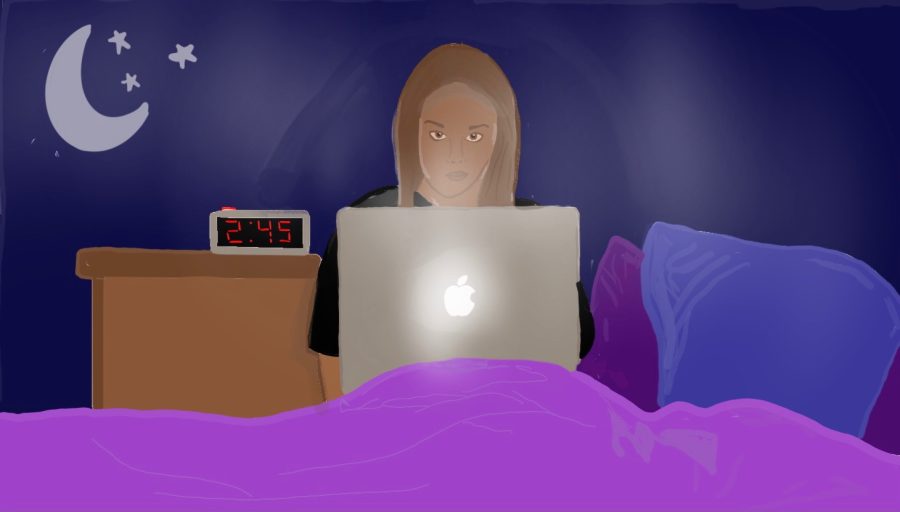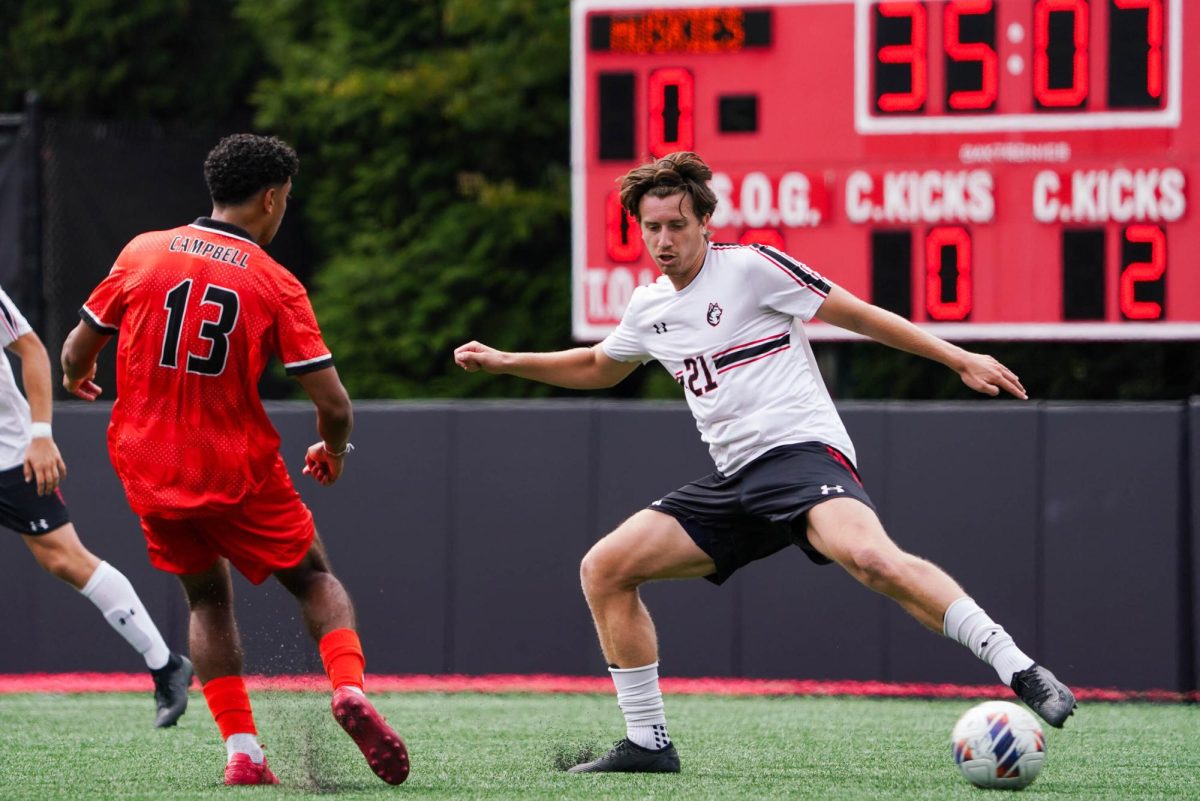All-nighters carry negative effects on students, cause biological harm
Despite the negative effects of sleep deprivation, college students can’t seem to help themselves from pulling all-nighters to study for exams and complete assignments.
November 9, 2021
Content warning: Mention of suicidal ideation and mental health struggles
Experts agree: Sleep is one of the most essential facets of human health.
Humans cannot function without it, yet it is often one of the first things sacrificed in times of stress. As a result, sleep deprivation can have drastic effects on bodily circadian rhythms, the sympathetic nervous system and hormone production, as well as on the human psyche.
Despite the negative effects, college students can’t seem to help themselves from overextending, pulling all-nighters to study for exams and complete assignments.
“When you don’t get proper sleep, you’re talking about pretty much messing up every system of the body,” said Dr. Maneesh Gaddam, a sleep medicine fellow at Tufts Medical Center. “These are all significant consequences, because sleep deprivation affects each organ of the body.”
Experts say this is what makes lack of sleep so dangerous, especially in individuals whose brains are not fully developed, such as most undergraduate college students. Although sleep deprivation infiltrates every bodily system, the nervous system is most significantly affected, explained Nesita Kwan, a licensed marriage and family therapist based in California.
“We need regular deep relaxation and sleep, and if we don’t get that, our nervous systems become so dysregulated that we get overloaded,” Kwan said. “If you don’t sleep you have all of the intensity from the past days pent up, and you go on for days and days without rest and your nervous system gets completely out of whack.”
Humans need approximately eight hours of sleep nightly in order for their bodies to perform properly. In addition to harming the nervous system, sleep deprivation can alter the pattern, and, by extension, the quality of sleep a person is getting.
“If you’re not meeting the demands of the body and getting [an] adequate eight hours, it will affect sleep patterns,” Gaddam said. “[Without sleep], your body won’t slow down and relax normally. There are a lot of physiological effects that can come from that. Cortisol levels will be up, insulin resistance will increase and so will anxiety.”
Kwan’s college-aged clients have explained to her why all-nighters are a common antidote to a busy schedule. Ultimately, the perception is that students will get everything done, but that isn’t the case.
“When it comes to sleep and memory there’s the idea that you can memorize everything, but the lack of sleep can impact memory to the point where the all-nighter isn’t effective, or as effective as people think,” Kwan said.
These thoughts were echoed by Andy Alsberg, who runs her own therapeutic practice out of Studio City, California.
“I think that there’s almost a distinction or pride in being able to say that you pulled an all-nighter, but there’s no reason for that,” Alsberg said. “You can spread out and have time to actually enjoy your life without pulling all-nighter.”
Alsberg’s son studied architecture at the University of California, Berkeley. She said she consistently saw how all-nighters were negatively affecting him and his classmates.
“There were many, many times that [my son would] be up until 2:00 a.m. He told me about this one time where he basically didn’t sleep; he stayed up the whole night with a girl who also had to do a review the next day at 9:00 a.m,” Alsberg said. “She completely passed out and had to be taken to the hospital because she was dehydrated, hadn’t eaten and was nervous on top of all that.”
These kinds of habits that students build can have drastically negative effects, not just physiologically, but also emotionally.
“I think when you follow it down the rabbit hole, if you’re not comprehending what you’re learning during the day it’s hard to get the grades you want, your GPA goes down because of it and that can affect your feelings of self worth,” Alsberg said. “So you’ve stayed up all night to either do your work, or party and enjoy yourself in college but if you can’t pull it together and do the work, then why be in college?”
Kwan said that sleep is one of the first things she evaluates in her patients.
“It has a big link to depression, self esteem and confidence, and if you’re permanently sleep deprived and you compensate by eating sugar and drinking coffee you have a whole other set of issues,” Kwan said.
Students have also been exploring more dangerous options in their quest to stay awake.
The abuse of Adderall has become increasingly common in past years. The drug, typically acquired illegally, is designed to reduce impulsivity and increase focus. Many who abuse it hope taking the pill will help their productivity, making it ideal for all-nighters.
A 2016 study conducted by Johns Hopkins University showed that unprescribed Adderall use was up 67% from 2006 to 2011, and trends suggest that is increasing. Kwan said that unprescribed Adderall usage wasn’t something she’d noticed during her time in college, but she’s become increasingly familiar through hearing stories from her patients.
“My concern is that if someone who [doesn’t have Attention Deficit Disorder] is using Adderall and they’re using it to help them focus, they then might start to need it to focus and become dependent on it,” Kwan said.
When students decide to pull all-nighters, the idea is that they’ll simply make up for it with a nap or by sleeping in the next day; however, that solution is only a temporary fix for a large, more pervasive problem.
“You can push your limits to about 24 hours, but then your focus is lost. When that happens your vigilance and concentration go down, and you’d need to compensate for that lack of sleep with almost two full nights worth,” Gaddam said.
Poor sleeping habits have become a staple of the college experience. Sleep deprivation is taking its toll on students across the country. In order to fight this, Alsberg believes that it is ultimately the American culture surrounding hard work that needs to change.
“I think [lack of sleep] translates to how we think work should be done in America, which is, well, kill yourself,” Alsberg said. “Basically, you’re not doing a good enough job unless you’re killing yourself, according to our society, and that’s no way for anyone to live.”







